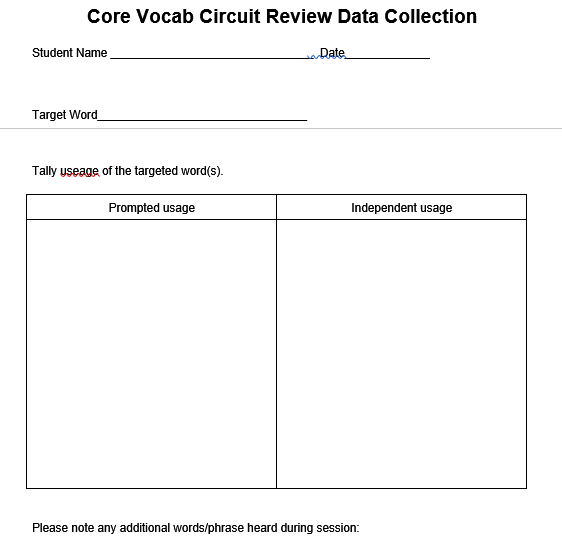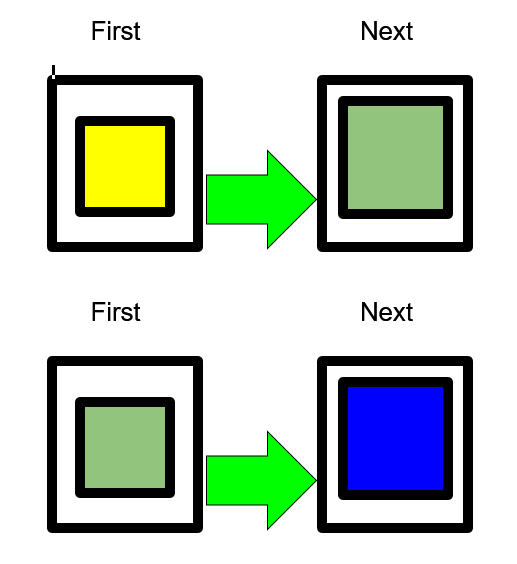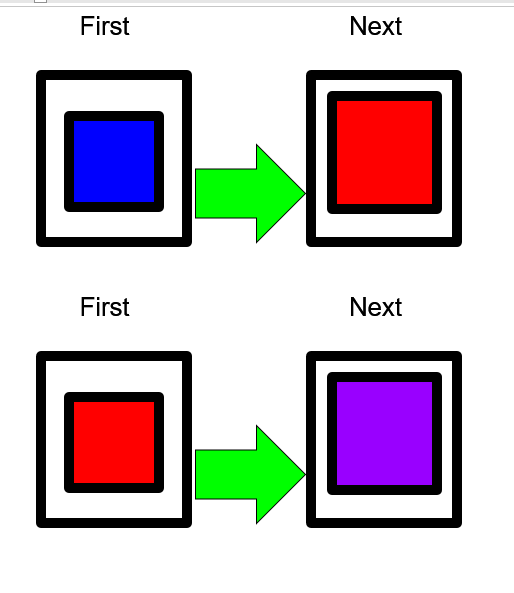
_ By Angie Sheets_
In my intense interventions elementary classroom, I love collaborating with my SLP and SLPAs to utilize the word of the week core vocabulary instructional approach. This has been an amazing way to specifically target core words. To supplement word of the week, I have created a systemic approach to vocabulary review. I call it the Circuit Training approach.
Several years ago I went on a health kick and joined a women’s fitness center that focused on circuit training: short intervals of intense training targeting specific muscle groups. We would do six minutes on each machine/exercise and then transition to the next machine/exercise. These short bursts of intensive activity were designed to quickly and effectively target specific muscles, build mass and strength in efficient manners while maintaining commitment to involvement by switching activities.
Why not bring this concept to the classroom: short bursts of rapid, intensive instruction in specified areas, transitions, and repeat to build communication strength and fluency?
Every sixth week I do a review circuit that contains five stations, one for each vocabulary word from the past five weeks. Why did I choose to implement after every five weeks? It’s simple - I had five staff members available to implement the stations. I am blessed to have enough paid staff to utilize this system in my classroom, but the centers could easily be run by high school cadets or community volunteers.
Each of my circuits lasts six minutes. This is really not a scientific approach. I tried five minutes, but that did not seem long enough. I tried 7 minutes, but that seemed too long. So six minutes is where I landed, and it seems to be enough time to engage, interact, provide necessary repetition and still hold student interest.
This is how I implement Core Vocab Circuit Review:
Designate five locations in your instructional area that offer enough space for active engagement. Mark each area with a color code (see Core Vocab Circuit Review) to be used to designate specific locations for each activity. Make First/Then boards (These can be reused each time you do a circuit review.) to keep at each station to help with transitions. It may also be helpful to make a video model of how the transitions will take place. This will make certain that staff and students have an understanding of how they will rotate from station to station.
Choose activities to target your core word selections. I select activities that can be easily set up/cleaned up and do not require lots of prep for assistants or whomever may be running the center. I typically do not include messy art or sensory activities as the short session just does not allow enough time to clean up. Make sure you include a variety of activities to maintain interest. Try to mix up gross motor, table work, fine motor, and sensory activities.
Make Core Vocab Circuit Review sheets. This form gives explicit instructions to your circuit leaders to make sure they know which words they are targeting and directions for activities. Don’t forget to include a means for data collection.
Designate a timekeeper (make sure he/she has a stopwatch or iPad with timer) who can give a one minute warning and then announce when transitions need to take place.
You can help boost staff morale by including a friendly challenge. For instance, whichever staff member can elicit and document the most responses of the targeted word/phrase gets five extra minutes on lunch break, gets a recess duty free day or pack of M&Ms.
Core Vocab Circuit Review works in my classroom because students are highly engaged, short bursts of strong repetition help maintain attention, all students and staff are actively involved, and instruction/data collection are simple and systematic.





Stories and Strategies fo...
